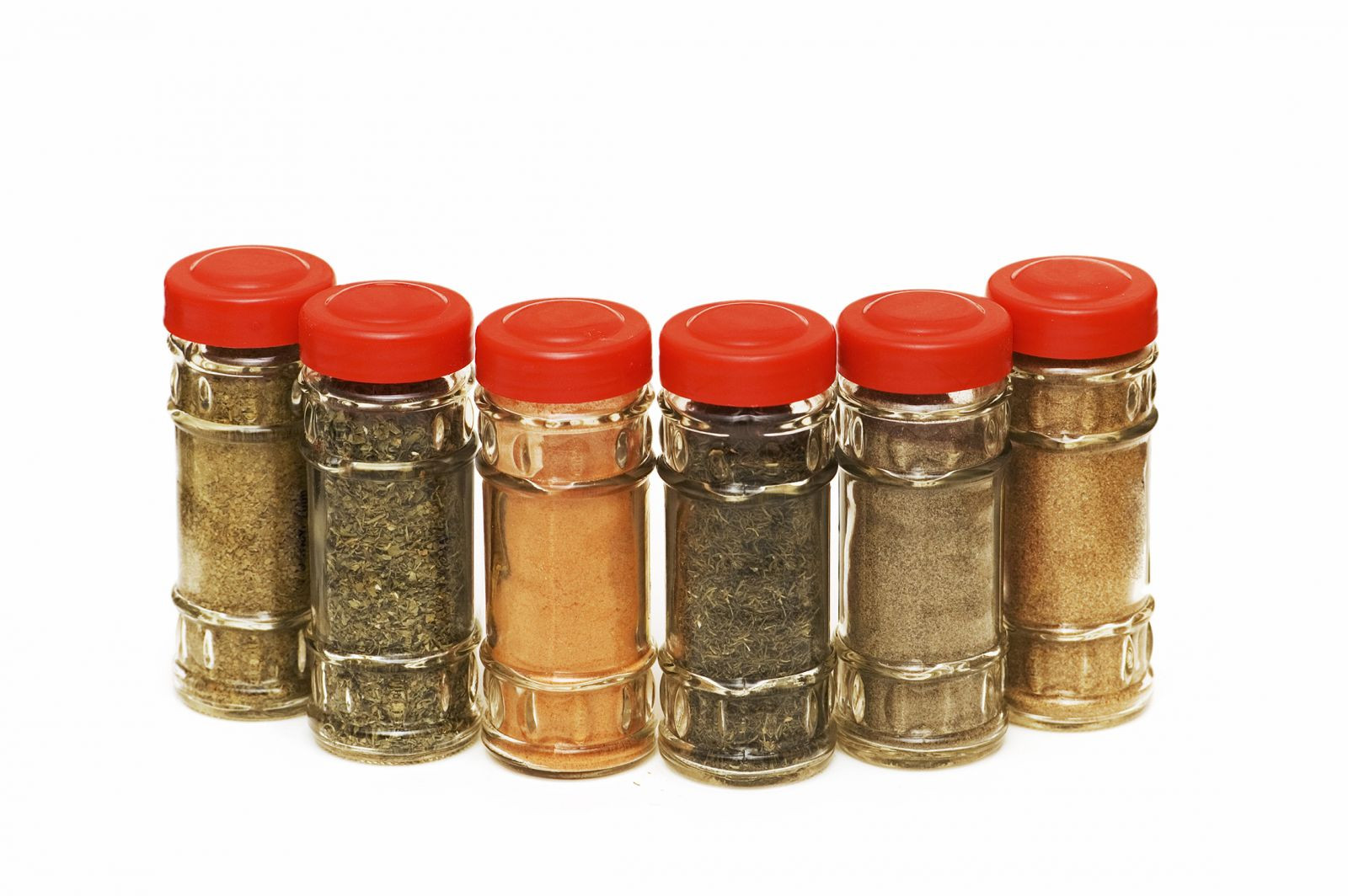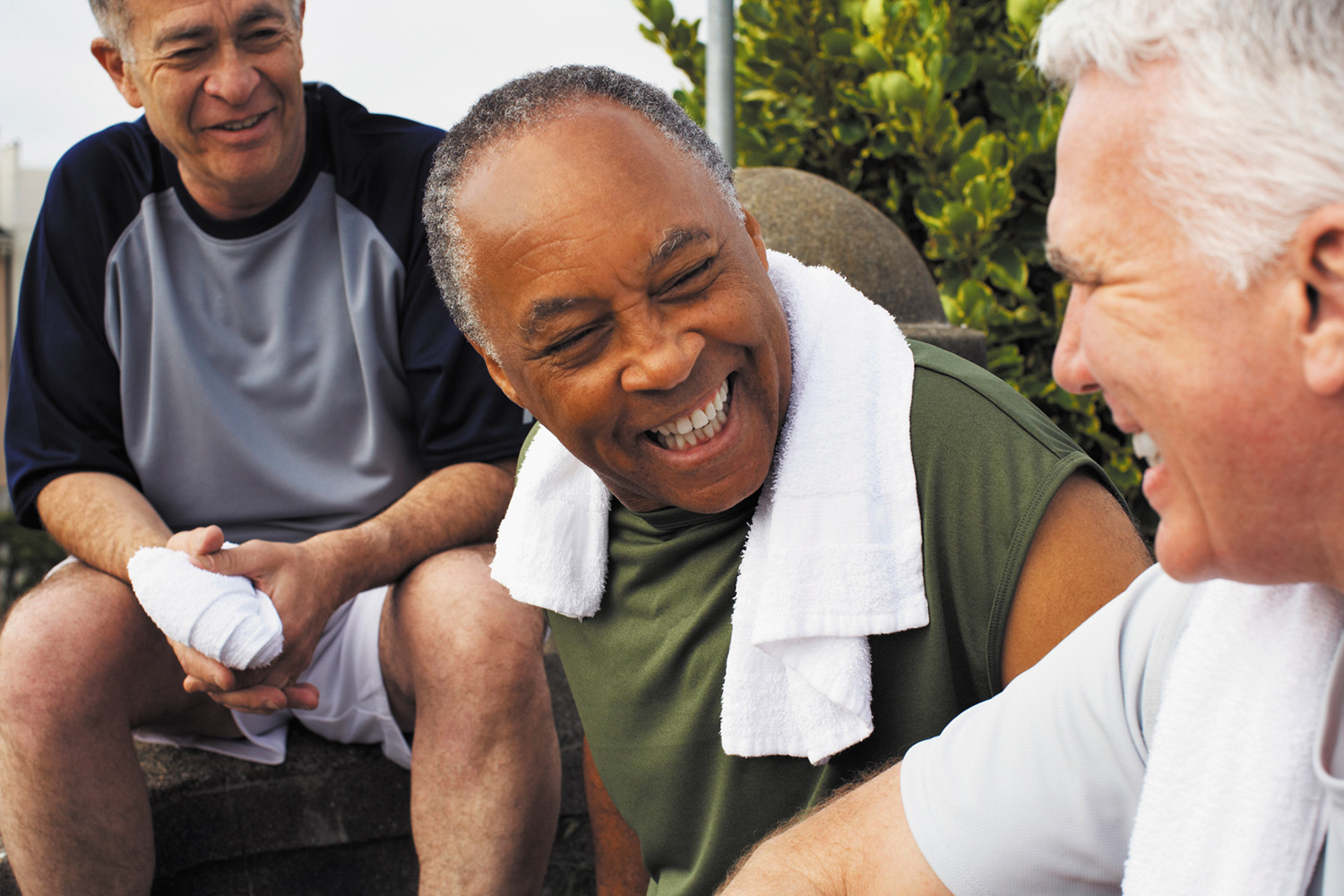
Avocado nutrition: Health benefits and easy recipes

Swimming lessons save lives: What parents should know

Preventing and treating iliotibial (IT) band syndrome: Tips for pain-free movement

Wildfires: How to cope when smoke affects air quality and health

What can magnesium do for you and how much do you need?

Dry socket: Preventing and treating a painful condition that can occur after tooth extraction

What happens during sleep �� and how to improve it

How is metastatic prostate cancer detected and treated in men over 70?

Could biofeedback help your migraines?

What is autism spectrum disorder?
Staying Healthy Archive
Articles
Yoga for everyone
Chair yoga can help you boost balance, flexibility, mood, and overall strength.
You don't have to be steady on your feet to reap the rewards of yoga. There's a kind of yoga class tailored to people who need assistance with balance and stability. It's called chair yoga, because the yoga is performed while seated or while standing next to a chair for support. "It's especially good for people who can't get up and down off the floor, but really anyone is a candidate for the class as long as the person doesn't have an injury that would cause harm by movement," explains Laura Malloy, director of yoga at the Benson-Henry Institute for Mind Body Medicine, part of Harvard-affiliated Massachusetts General Hospital.
Yoga benefits
Yoga is a series of poses (called postures) and breathing techniques that include an element of meditation. The postures are beneficial in a number of ways. They help reduce muscular tension, build flexibility and strength, add bone strength, and improve balance.
Can everyday spices make you healthier?
Turmeric, coriander, and cumin may boost your health and breathe new life into tired dishes.
The health benefits of foods such as berries, broccoli, and salmon are well known. But your kitchen's spice rack may also hold some secret weapons against conditions such as inflammation, heart disease, cancer, and more. "Spices are underused, but it would be very easy to take advantage of them and improve health," says Dr. Lipi Roy, an internal medicine physician at Harvard-affiliated Massachusetts General Hospital.
There are few large randomized trials that demonstrate spices' health effects. But many studies in animals suggest that several spices offer benefits. So instead of flavoring your food with salt and butter, which can contribute to high blood pressure and heart disease, consider using the following spices.
A little help from your friends
Fostering strong social connections does not come easy for many men, but it is one of the best means to a longer and healthier life.
Social connections are as important to your health as proper diet and exercise. Research has linked social bonding to longer lives, lower incidence of depression and anxiety, and reduced risk of disease.
"Our brains and bodies function best when we are part of a community and maintain close, personal connections," says Dr. William S. Pollack, assistant clinical professor in the Department of Psychiatry at Harvard Medical School.
Passing your physical exam
The annual check-up is important for older men. Here is how to make the most out of your visit.
Men have a long reputation for avoiding check-ups, and that resistance tends not to soften when they are older.
"Many older men put off exams because they fear finding out something is wrong," says Dr. Suzanne Salamon, a geriatrician with Harvard-affiliated Beth Israel Deaconess Medical Center. "Also, many of today's baby boomers don't think they will have medical problems associated with age, so it can difficult for the 'younger older men,' like those in their 60s and early 70s, to see their doctor."
Preserve your muscle mass
Declining muscle mass is part of aging, but that does not mean you are helpless to stop it.
The saying goes there are two certainties in life: death and taxes. But men should also add loss of muscle mass to the list.
Age-related muscle loss, called sarcopenia, is a natural part of aging. After age 30, you begin to lose as much as 3% to 5% per decade. Most men will lose about 30% of their muscle mass during their lifetimes.
Heart attack survivors can have sex without fear
Sex does not appear to trigger a heart attack or increase your risk for a second one, suggests a study in the Sept. 21, 2015, issue of the Journal of the American College of Cardiology.
Experts looked at 536 heart attack survivors ages 30 to 70 and evaluated their sexual activity in the 12 months prior to their heart attack. Sexual activity was divided into three categories: less than once a month, less than once a week, and once or more per week.
Ask the doctors: How much fruit can I eat and stay within the sugar guidelines?
Ask the doctors
Q: I just read that we shouldn't be getting more than 10% of our calories from sugar. Should I cut back on fruit?
A: While it's a good idea to limit sugars from processed foods, you can worry less about eating too much fruit. In fact, one small study found no ill effects in people who ate 20 servings of fruit a day for 12 to 24 weeks.
Do you want a house call—from your insurance plan?
Medicare Advantage plans are offering home visits to healthy people who have their own doctors. Their purpose isn't clear.
For many of the 17 million people insured by a Medicare Advantage plan, the offer of a home visit may come as a surprise. (Medicare Advantage plans, which cover about a third of Medicare recipients, are offered by private companies approved by Medicare, and Medicare reimburses those companies for part of the care they pay for.) According to the Centers for Medicare & Medicaid Services, home visits are on the increase among people with these plans, and not just among the sick or housebound. Patients who are healthy and mobile are also being offered home visits, and millions have undergone them.
What are home visits?
The home visit—which typically lasts 45 minutes to one hour and includes a physical exam, health history, and lab tests—is conducted by a nurse practitioner or physician under contract to the insurance plan. The results are forwarded to the person's primary care provider for follow-up. The insurers stress that the home visits are not a substitute for an annual physical or recommended screening tests.
Happiness may not extend life
Although poor health can lead to unhappiness and a shorter life, unhappiness alone is not associated with a shorter life span, according to a recent report from the Million Woman Study. That investigation has followed hundreds of thousands of women throughout the United Kingdom beginning in 1996 and has tracked deaths among the participants.
In the third year of the study, the women were asked to rate their health, happiness, stress, feelings of control, and whether they felt relaxed. When the researchers looked at data from 720,000 women with a median age of 59, they found that 83% reported being generally happy and 17% said they were unhappy. During 10 years of follow-up, 4% of participants died. When the researchers factored out poor health, which was strongly associated with unhappiness, they found that the risk of dying was essentially the same for happy and unhappy women. The study was published online Dec. 6, 2015, by The Lancet.
8 steps to mindful eating
This ancient practice can transform the way you think about food and set the stage for a lifetime of healthy eating.
Like most of us, you've probably eaten something in the past few hours. And, like many of us, you may not be able to recall everything you ate, let alone the sensation of eating it. According to a 2011 report from the U.S. Department of Agriculture, the average American spends two-and-a-half hours a day eating, but more than half the time, we're doing something else, too. Because we're working, driving, reading, watching television, or fiddling with an electronic device, we're not fully aware of what we're eating. And this mindless eating—a lack of awareness of the food we're consuming—may be contributing to the national obesity epidemic and other health issues, says Dr. Lilian Cheung, a nutritionist and lecturer at Harvard T.H. Chan School of Public Health.

Avocado nutrition: Health benefits and easy recipes

Swimming lessons save lives: What parents should know

Preventing and treating iliotibial (IT) band syndrome: Tips for pain-free movement

Wildfires: How to cope when smoke affects air quality and health

What can magnesium do for you and how much do you need?

Dry socket: Preventing and treating a painful condition that can occur after tooth extraction

What happens during sleep �� and how to improve it

How is metastatic prostate cancer detected and treated in men over 70?

Could biofeedback help your migraines?

What is autism spectrum disorder?
Free Healthbeat Signup
Get the latest in health news delivered to your inbox!
Sign Up










